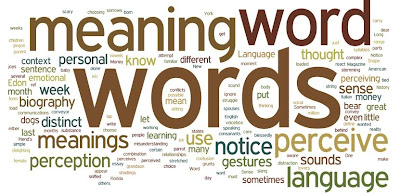The Sense of Word
I was with my grandson for a month, a very vocal month. For a couple of weeks, as he turned six months old, he was delighting in the sounds he could make. From grunts to squeals he was learning how to master the range of his voicebox. On the last day he was sitting on his father’s lap and we let our friend’s dogs in. They came up to the baby, sniffed, licked and walked away. Edon wanted more. He stretched out his arms and called out to the dogs. He didn’t use a real word but it was a distinct sound with a distinct desire behind it. Language as a conveyor of personal reality was being born. Edon was not just making sounds and finding his voice, he was speaking and gesturing. And blessedly, I perceived this first attempt at language.
Words, language and gestures bear meanings but are not the meaning. They are form but not substance. In most cases, they carry merely parts of the meaning but not the whole.
With the sense of word, language and gesture, we perceive the sounds of vowels and consonants. We notice syllables. And we notice intention. We actively shape our words. We choose our words and we perceive the choosing of words.
My mother tongue is English. My words are American, a combination of Long Island and South Florida dialects. I also use jargon words, esoteric words, slang, etc stemming from my studies and my interests. I am female. And it is important to know that most of my choice of words and my pleasure in perceiving certain words is loaded with the emotional and intellectual shadings of my biography – my joys and sorrows.
Because most of us confuse words with meaning and are not aware that the perception of words is distinct from the perception of meaning, we get into states of misunderstanding, confusion and distraction in our learning, our relationships and our communications.
Sometimes people don’t know what my words or gestures mean. They have either a different personal history with the word or a different language all together. An Italian or a Chinese perceives my words and could parrot them, but his sense of my meaning is lost in the simple perception of language. And then there is the struggle with spouses, lovers, parent, children and others so familiar and dear, that sometimes don’t hear the words, let alone care about the personal meaning they bear.
But what is really scary is sometimes I don’t know what my words mean to me or I use the wrong words for the meaning I want to convey. A word I was working with as I thought about this little essay was “money.” Money is a word I perceive and load with lots of emotional meanings and little thought.
I can define words in isolation but put them in a string of words, a sentence, and put the sentence in a context of even more complex meaning and I must work to perceive the meaning of the word in the context of many words.
Most words have several meanings. One word with many subtle meanings is the word “love.” I perceive the word and a million possible meanings appear. How do I perceive the exact meaning in the moment? Not by perceiving the word. (Next week I will share about the thought sense which allows us to perceive meaning even when the meaning conflicts with the words being used!)
This week notice words. And notice body words or gestures. Notice how you use the word or react to the word and ignore or miss the meaning. And notice how your perception of the word is tied to your biography with the word. (I could write pages about my biography with the money words!)
Here is a great article on language and thinking that was in the New York Times Sunday Magazine last week. It’s a great read.
Does Your Language Shape How You Think?
http://www.nytimes.com/2010/08/29/magazine/29language-t.html?_r=1&ref=magazine
Here is the website to create a word cloud out of any written document. http://www.wordle.net/ A word cloud works with the sense of word. It is fun to play with.


